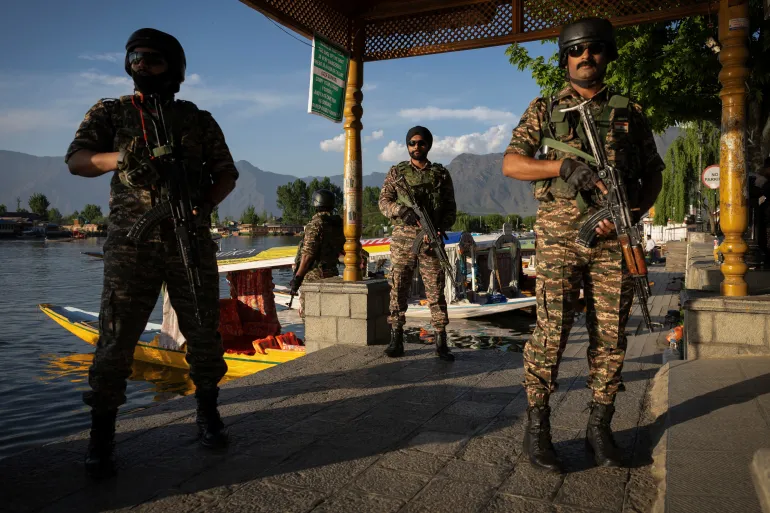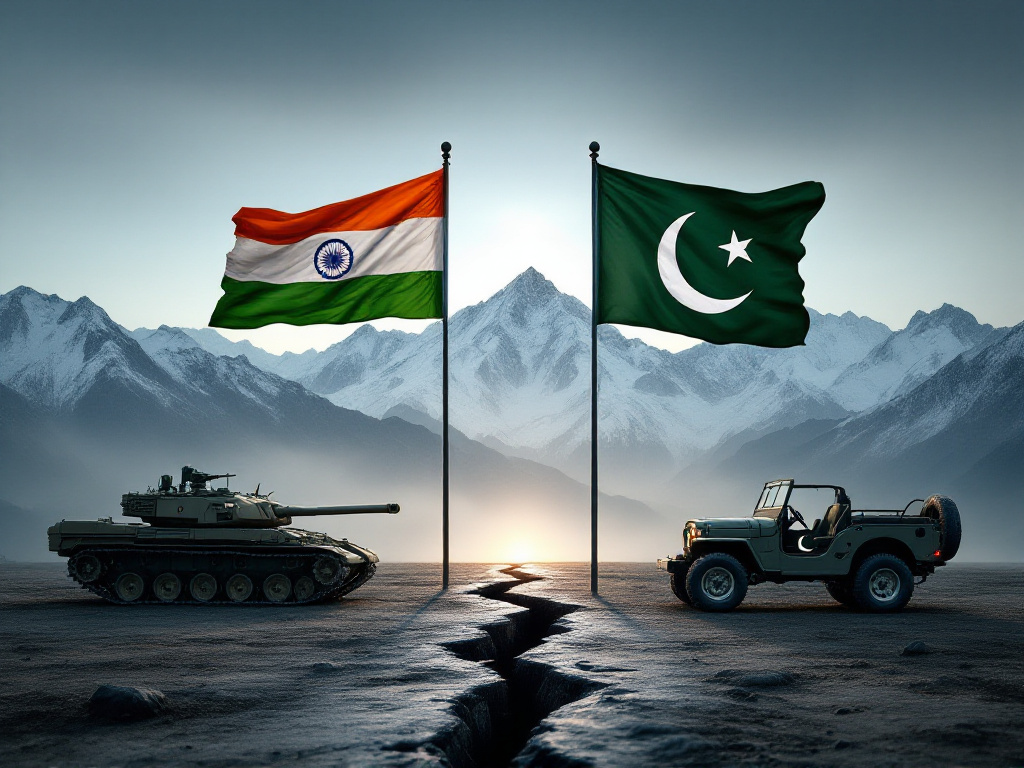Escalating Tensions: India and Pakistan Exchange Accusations Over Military Strikes

In a significant escalation of hostilities, India and Pakistan have exchanged accusations over military strikes, raising concerns about the potential for a broader conflict between the two nuclear-armed neighbors. The recent incidents have marked one of the most serious confrontations between the countries in over two decades.
Accusations and Denials
India has accused Pakistan of launching drone and missile attacks on three of its military bases located in Jammu, Udhampur in Indian-administered Kashmir, and Pathankot in Punjab. The Indian Army claims to have thwarted these attempts, which reportedly resulted in blasts and a subsequent blackout in Jammu city. Pakistan’s Defense Minister, Khawaja Asif, has categorically denied these allegations, stating that Pakistan was not involved in the attacks.
Retaliatory Strikes and International Reactions
The situation further intensified when India reported striking Pakistan’s air defenses, alleging that it had neutralized Pakistan’s attempts to target military installations in India. Pakistan has condemned this action as an “act of aggression,” following earlier Indian missile strikes on targets within Pakistan and Pakistani-administered Kashmir. The international community, including the United Nations and various world leaders, has called for de-escalation and restraint to prevent the situation from spiraling out of control.
Humanitarian Impact and Rising Tensions
The ongoing conflict has had a severe humanitarian impact, with casualties reported on both sides. Pakistan claims that Indian air strikes have resulted in 31 deaths and 57 injuries, while India reports 16 fatalities due to Pakistani firing in the disputed Kashmir region. The escalating tensions have also led to the displacement of civilians in border areas, who have been forced to seek shelter due to the cross-border shelling.
The Path Forward
As the situation remains volatile, there are growing concerns about the potential for further escalation. Both countries have a history of conflict over the Kashmir region, which has been a flashpoint since their independence in 1947. The recent events underscore the urgent need for diplomatic efforts to de-escalate tensions and prevent a full-blown conflict. The international community continues to monitor the situation closely, hoping for a peaceful resolution to the crisis.
In conclusion, the recent military exchanges between India and Pakistan highlight the fragile nature of their relationship and the ongoing challenges in the region. As both countries navigate this complex situation, the hope is that diplomatic channels will prevail, leading to a de-escalation of hostilities and a return to stability.
